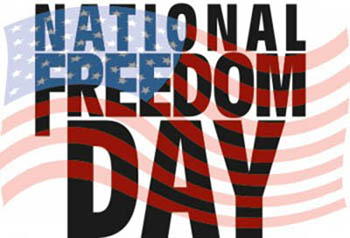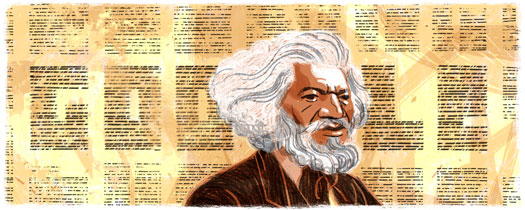

National Freedom Day honors the signing by Abraham Lincoln of a Congressional resolution that later became the 13th Amendment to the U.S. Constitution. President Lincoln signed the Amendment outlawing slavery on February 1, 1865, although it was not ratified by the states until later.
Major Richard Robert Wright Sr., a former slave, believed that there should be a day when freedom for all Americans is celebrated. While living in Philadelphia towards the end of his life, he invited local and national leaders to meet to organize a movement for a national holiday to commemorate Lincoln's signing of the 13th Amendment. The resulting National Freedom Association proposed having a memorial date to call attention to the continuing struggle for freedom for African-Americans. Since President Lincoln had signed the 13th Amendment on the first day of February, that date was chosen to celebrate National Freedom Day. The first commemoration took place on February 1, 1942, at Independence Hall in Philadelphia, Pennsylvania. As it has every year since, the remembrance included laying a wreath at the Liberty Bell.
Today is the start of Black History Month also known as African-American History Month in America, is an annual observance in the United States, Canada, and the United Kingdom for remembrance of important people and events in the history of the African diaspora. It is celebrated annually in the United States and Canada in February, and the United Kingdom in October..

On this day the google doodle honored Frederick Douglass born in February 1818 - an African-American social reformer, abolitionist, orator, writer, and statesman. After escaping from slavery, he became a leader of the abolitionist movement, gaining note for his dazzling oratory and incisive antislavery writings.
After escaping from slavery in Maryland, he became a national leader of the abolitionist movement from Massachusetts and New York, gaining note for his dazzling oratory and incisive antislavery writings. He stood as a living counter-example to slaveholders' arguments that slaves lacked the intellectual capacity to function as independent American citizens. Even many Northerners at the time found it hard to believe that such a great orator had once been a slave.
Douglass wrote several autobiographies. He described his experiences as a slave in his 1845 autobiography, Narrative of the Life of Frederick Douglass, an American Slave, which became a bestseller, and was influential in promoting the cause of abolition, as was his second book, My Bondage and My Freedom (1855).
After the Civil War, Douglass remained an active campaigner against slavery and wrote his last autobiography, Life and Times of Frederick Douglass. First published in 1881 and revised in 1892, three years before his death, it covered events during and after the Civil War. Douglass also actively supported women's suffrage, and held several public offices. Without his approval, Douglass became the first African American nominated for Vice President of the United States as the running mate and Vice Presidential nominee of Victoria Woodhull, on the Equal Rights Party ticket.
A firm believer in the equality of all peoples, whether black, female, Native American, or recent immigrant, Douglass famously said, "I would unite with anybody to do right and with nobody to do wrong."